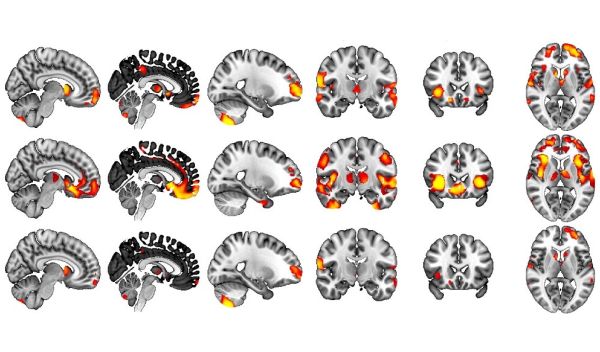Genetic, environmental factors contribute to how socioeconomic status impacts the brain
Research reveals more about how environment, genetics and socioeconomic status influence brain function

View image credit & caption
June 28, 2022
A study in Science Advances has revealed correlations among socioeconomics, genetics, environmental factors and brain structure. Socioeconomic status is typically defined by characteristics such as an individual's income, education and occupation, and is related to quality of life and physical and mental health.
The findings provide greater understanding about how socioeconomic, environmental and genetic factors interact to influence human brain development and structure. The endeavor was funded by a grant from the U.S. National Science Foundation.
An international team, including researchers at Penn Stat, analyzed a massive trove of data from the UK Bioban that contained the brain scans, genomic sequences and socioeconomic information of nearly 24,000 participants.
The researchers discovered that both nature and nurture play key roles in brain structure and development and that only about half the measured anatomical features in the brain could be attributed to genetic factors. Socioeconomic factors also play a significant role.
"What we saw is that some of the relationship between the brain and socioeconomic status could be explained by genetics, but there is a lot more to that relationship that remains even after accounting for genetics," said Gideon Nave, a study co-author. "This suggests that socioeconomic conditions get under the skin in some way and can have additional negative influences on the social and economic disparities we see around us."
The study also revealed differential impacts of socioeconomic status and environmental factors that span a variety of brain regions. Socioeconomic status can affect physical and mental health, cognitive capacity, educational achievement and brain development and structure. Understanding more about how environmental and genetic factors influence the effects of socioeconomic status on the human brain could lead to earlier and improved mitigation efforts.
"We know that environmental conditions such as air and water quality can have enormous impacts on brain development and size," said Jonathan Fritz, director of NSF’s Cognitive Neuroscience Program. "This research takes an important step forward by analyzing large data sets and using powerful statistical tools to reveal more clearly than ever the impact of socioeconomic status and environmental quality on the brain, which can lead to profound effects on human cognition."
The team noted that more study on the topic is necessary to move from correlation to causation in interpreting how the interplay of factors like environment, genetics and socioeconomic status shape brain structure and development
No comments:
Post a Comment